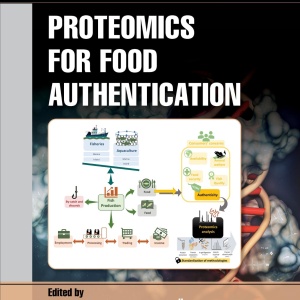
This book explores how proteomics - the study of the set of proteins produced by an organism or system - can be used to verify claims about the origin of foods such as milk, meat, fish, wine and honey.
Publisher’s summary
Consumers have the right to know what is in the food they are eating, and accordingly, a number of global food regulations require that the provenance of the food can be guaranteed from farm to fork. Many different instrumental techniques have been proposed for food authentication. Although traditional methods are still being used, new approaches such as genomics, proteomics, and metabolomics are helping to complement existing methodologies for verifying the claims made about certain food products.
During the last decade, proteomics (the large-scale analysis of proteins in a particular biological system at a particular time) has been applied to different research areas within food technology. Since proteins can be used as markers for many properties of a food, even indicating processes to which the food has been subjected, they can provide further evidence of the food’s labeling claim. Proteomics for Food Authentication, a volume in the Food Analysis and Properties Series, is a comprehensive and updated overview of the applications, drawbacks, advantages, and challenges of proteomics for food authentication.
Features:
- Provides a comprehensive and critical overview of the application of proteomics in food
- Helps food scientists determine the authenticity of several food products
- Provides applied techniques for both laboratory and industrial environments
- Describes workflows, technologies, and tools that are being assessed in proteomics-related studies
Workflows, technologies, and tools that are being assessed in proteomics-related studies are described, followed by a review of the specific applications regarding food authenticity and, now and then, food quality.
The book will provide a comprehensive and critical overview of the application of proteomics approaches to determine the authenticity of several food products updating the performances and current limitations of the applied techniques in both laboratory and industrial environments.
As such it is well suited to food scientists, chemical engineers, food engineers, research labs, universities, governments, related food industries.
Reference
Nollet, L. M. L. and Ötleş, S. (2020). Proteomics for Food Authentication. CRC Press, Boca Raton.
Read more here. See also the Foodsource resource How do food systems link multiple issues and concerns?







Post a new comment »